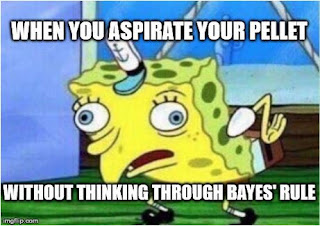The D4DR gene and my own bad habits
So you’re giving your journal club presentation, it’s going alright, and a few minutes in you notice that one of your slides looks a little off. You could have sworn that you made some edits to it, a few lines of text to clarify a figure. Flip to the next slide, and you realize: these are the wrong slides! What’s more, you have absolutely no idea what slides are coming next, since they could have been downloaded at any point between submitting the Google Slides link the night before and the five minutes prior to the presentation.
Yeah, five minutes, because that’s unfortunately the kind of person that I am. I can’t count the number of assignments I’ve turned in with five minutes or fewer to the deadline. It’s a tendency that’s caused some real problems for me, and one that I actually used to feel bad about not being able to overcome. Did I just not have the willpower, or something?
Side note but Calvin and Hobbes is objectively the best comic strip to have ever been written.
However, hours of internet research and the book Genome, by Matt Ridley (a fascinating read and very accessible even to the nonscientific reader, although IMO he does take some of his conclusions a little beyond what’s scientifically sound) have turned up some possible answers in the D4DR gene, which encodes the neurotransmitter dopamine. I’d like to preface this by saying that I am by no means an expert, and that there are no conclusive answers on this topic yet, just some pretty good evidence.
A lot of the research done on risk and reward in the human brain this centers around addiction: addicts have been found to have a lowered sensitivity to dopamine, resulting in them needing bigger highs to get the same feeling of reward, whether the high is heroin or gambling. Some people have theorized that this extends to procrastination: someone with a dampened dopamine pathway will need a stronger incentive, such as last minute panic, in order to do the same amount of work as someone who doesn’t have the tendency to procrastinate. After all, work requires reward, and the rush of turning something in 30 seconds before the clock ticks over to 12:00am is a pretty good one, I admit.
For a more in-depth look into this Sisyphean struggle check out Wait But Why’s Why Procrastinators Procrastinate! I would recommend the whole series for people like me, since it includes a helpful guide on how to stop procrastinating.
I’ll never be able to overcome my brain chemistry, but I can take steps to mitigate it. Small things like setting intermediate goals that give me a sense of accomplishment when I finish them go a long way. But the fight is ongoing; for proof, just look at the time stamp on this blog post.


Comments
Post a Comment